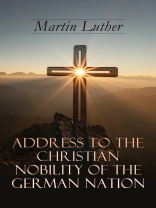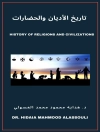Address to the Christian Nobility of the German Nation is one of the tracts written by Martin Luther in 1520. In this work, he defined for the first time the signature doctrines of the priesthood of all believers and the two kingdoms. After the church made a strong attempt at drawing distinct lines on saying who had authority in the spiritual sphere and its matters. This division of Christians into spheres motivated Luther to write on the ‘three walls’ the ‘Romanists’ created to protect themselves from reform:
‘Spiritual Power over Temporal’ – The first wall of the ‘Romanists’ that Luther criticized was that of the division of the spiritual and temporal state.
‘Authority to Interpret Scripture’ – In the second part of the letter to the Christian nobility of the German nation, Luther debates the point that it is the Pope’s sole authority to interpret, or confirm interpretation of, scriptures
‘Authority to Call a Council’ – The final part to Luther’s letter is the largest demonstration of his desire to see authority in control over the spiritual sphere shift to the temporal sphere.
About the author
Martin Luther (1483-1546) was a German professor of theology, composer, priest, monk, and a seminal figure in the Protestant Reformation. Luther came to reject several teachings and practices of the Roman Catholic Church. He strongly disputed the Catholic view on indulgences and he proposed an academic discussion of the practice and efficacy of indulgences in his famous Ninety-five Theses of 1517. Luther’s refusal to renounce all of his writings at the demand of Pope Leo X and the Holy Roman Emperor Charles V resulted in his excommunication by the Pope and condemnation as an outlaw by the Emperor.




